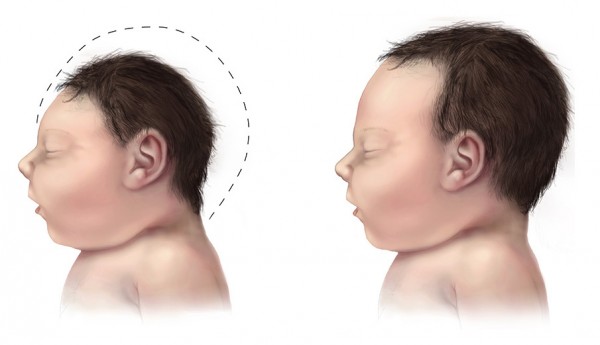Microcephaly: Here’s Something You Should Know for Future Pregnancies

The main symptom of microcephaly is the considerably smaller size of a baby’s head compared to others with similar gender and age.
One of the biggest fears of soon-to-be-parents is for their baby to experience a rare condition, also known as "microcephaly." A rare neurological condition and birth deficiency where the baby's head is smaller than expected when compared to other infants of similar gender and age.
According to the Centers for Disease Control and Prevention, babies with this condition frequently have smaller rains "that might not have properly developed."
The CDC also said, microcephaly is sometimes detected at birth and is typically the result of the abnormally-developing brain in the womb and not developing as it should following its birth.
This condition can result from various environmental and genetic factors. Specifically, children who have microcephaly frequently have developmental problems.
In general, there is no treatment for this condition. However, according to experts, early intervention with supportive therapies like "occupational and speech therapies" may help improve the child's development and enhance life's quality.
ALSO READ: Paracetamol Is No Longer Just for Pain, It's for the Psyche Too
Microcephaly Symptoms
The main symptom of microcephaly is the considerably smaller size of a baby's head compared to others with similar gender and age.
Typically, the head-sized is measured as the distance surrounding the top of the child's head, also known as "circumference."
Using a standardized growth chart, the measurement is typically compared with the measurements of other babies "in percentiles."
Some children are found just to have small heads whose measurement is recorded as low as its initial percentile. Meanwhile, in children who have microcephaly, their head size measures substantially lower than the average, perhaps, even lower than the initial percentile for the child's age and sex.
Additionally, experts in this condition say that an infant with more severe microcephaly may have a "backward-sloping forehead," too.
DON'T MISS THIS: Another Promising COVID-19 Vaccine Currently in the Works
What Causes this Condition?
This rare condition is typically the outcome of irregular or abnormal development of the brain which takes place in the womb or described as congenital, or right after the baby is born.
The causes of microcephaly, according to the CDC in most infants, remain unknown. Some babies may suffer from the condition due to their genes' changes.
Other causes, including a severe case, may include some exposures to certain conditions during pregnancy like "rubella, toxoplasmosis or cytomegalovirus."
Also, during pregnancy, bother the mother and child in her womb may have experienced severe malnutrition, which means, lack of nutrients or not getting adequate food.
Being exposed to harmful substances like alcohol, specific drugs, and toxic chemicals are also probable causes of the occurrence of microcephaly.
Some pregnant women also experience disruption of blood supply to their baby's brain during development, resulting in the possible occurrence of the said condition later.
Treatments
Microcephaly is a lifetime condition. As earlier mentioned, there is no known treatment or standard therapy for this particular case.
Moreover, since microcephaly can either be a mild or severe condition, treatment options may vary, too. Babies with mild conditions frequently do not experience any other complications other than having a small-sized head.
For a more severe case, babies will require care and treatment that are focused on controlling their other conditions, as mentioned earlier.
Developmental services earlier in life will frequently help infants with microcephaly enhance and maximize their physical and intellectual abilities.
Can Microcephaly be Prevented?
Learning the child has the condition can raise doubts and questions about pregnancies in the future. It is important that couples wanting to have, or expecting a baby, should work with their doctor to determine the main probable causes of such a condition.
If the cause is hereditary, couples may want to discuss their genetics counselor's condition about the risks in future pregnancies.
IN CASE YOU MISSED IT: Remdesivir Priced from $2,340 to $3,120 per Patient, Way Cheaper Than Estimated, Gilead CEO Says
Check out more news and information on Microcephaly on MD News Daily.
Sep 28, 2020 08:00 AM EDT





